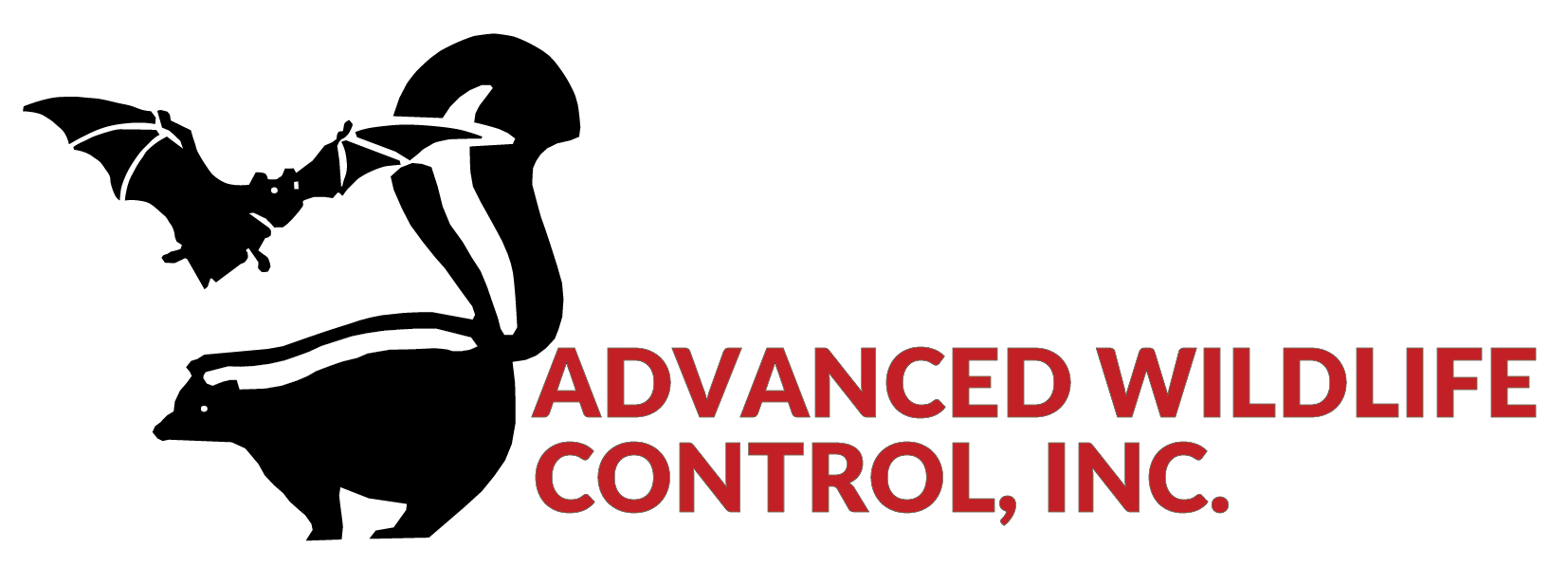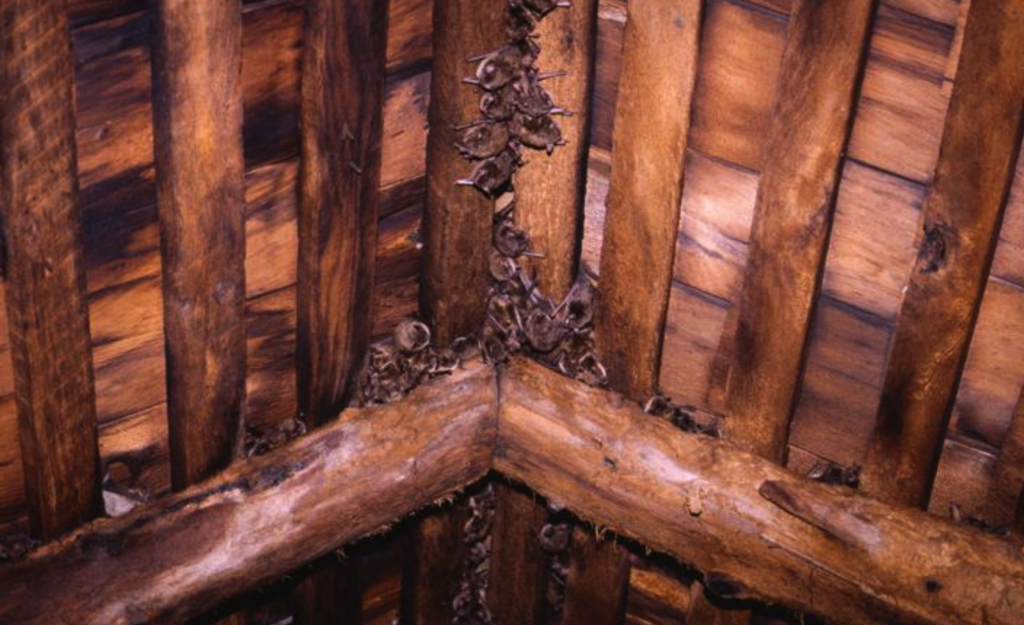As we approach fall, Bats begin looking for a place to call home and it could be yours.
As the crisper air comes in, their food source, insects are on their way out. This is typically around October and November in New England and the time when they begin hibernating.
Where do bats hibernate? Bats favor hibernation in dark and secluded places, which is why bat colonies are often found in caverns or other remote areas. Bats can also hibernate close to you…as in your home. While some bats seek out hollow trees, empty outbuilding, attics, and crawl-spaces present some of the most welcoming environments for bats seeking a hibernation spot. They love space adjacent to warm vents and pipes as the high heat gives their maternity colonies the ability to focus less on staying warm and more on spending their energy on growing. Once they find spots there through late summer/early fall, they often simply decide to stay through winter.
How to tell if you are sharing your space with bats? Other than the obvious sighting, you can look in your attic for roosts in the small cracks of attic walls. Roosts are often found between the rafters or tucked into the spaces between rafters and roofing material, then it’s time to call in the professionals.
Any bats present that aren’t in hibernation mode will most likely retreat rather than engage with you, but proceed with caution anyway, even if you don’t see evidence of a colony, as wild animals can be unpredictable. Listen for squeaking or scurrying sounds, and look for bat droppings (guano). While mouse droppings and bat droppings are similar in appearance – black, dry and about the size of a grain of rice – bat droppings, for the most part, will be concentrated only in the areas under the roost.
Some bats are actually capable of activity during their hibernation period but most usually remain inactive due to their this time.
The reason? When a bat hibernates, their metabolism slows down in order to conserve energy. Each day the bat’s body cycles in and out of a deep resting state known as torpor. During this time a bat’s heartbeat decreases from 200-300 BPM to as few as 1TEN BPM! This helps to maintain the energy level at 2% and allows it to survive for up to six months on a small amount of collected body fat. Often bats lose as much as half of its body weight during the hibernation period. The torpor state also allows bats to adapt to their surroundings. Bats can lower their body temperature from a normal level of 100 degrees or more all the way to 40 degrees or less as needed to preserve energy.
Prevention – Our preferred approach to keeping bats from entering your home
Bats can enter your home through an opening as small as a quarter of an inch in width. Keeping them out requires watchfulness.
We recommend the following steps to help assure that mother bats and their young resist roosting in your attic this year!
- Make sure you identify and seal all cracks in the home’s exterior using caulk, weather stripping or a wire screen as needed including windows
- Hire a professional to cap all chimneys and air vents in and around the home and/or garage.
If you suspect a bat colony in your attic –contact us! Be sure you do NOT seal up holes until you have removed all the bats. And remember, you HAVE to make sure all holes are addressed. These animals are used to being there now because it’s their home. If you miss a spot, they’ll find it and you may not even know they are back until it is too late.
Just like you get in your home typically the same way each time, so do they. BUT you have other ways in if need be and SO DO THEY!

